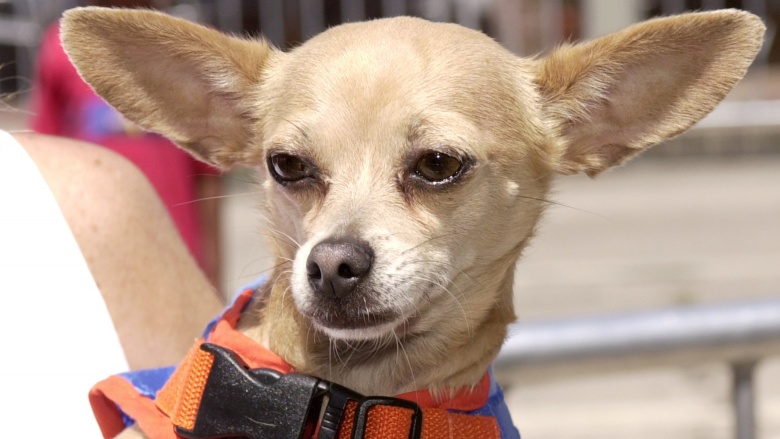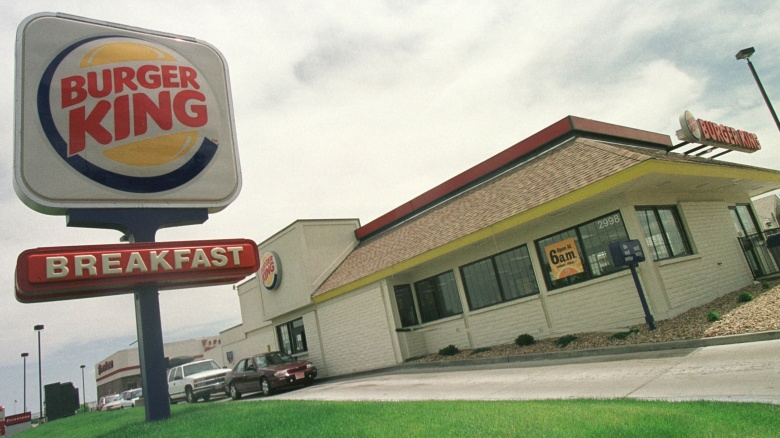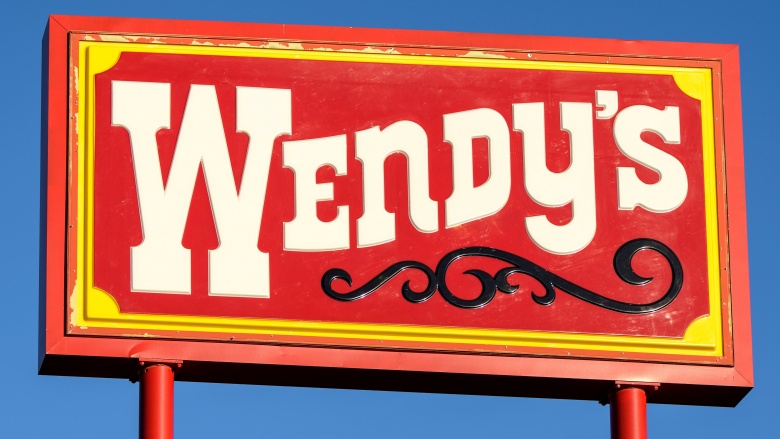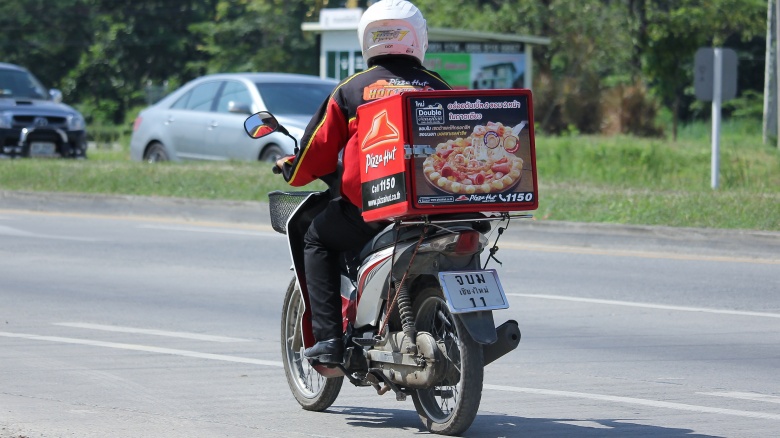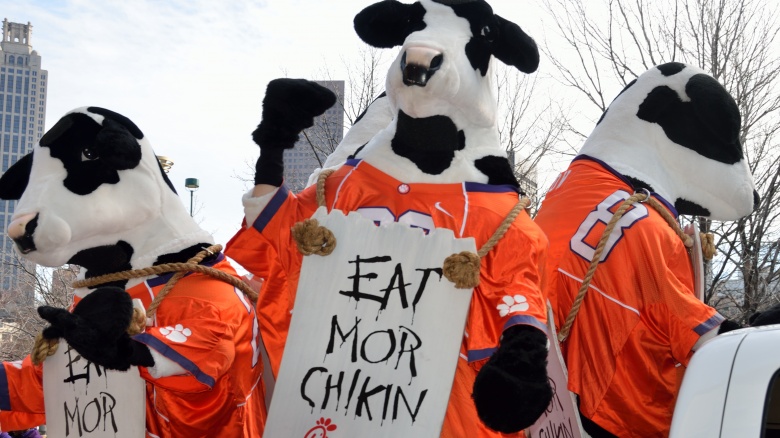Popular Chain Restaurants And Their Secret Histories
Chain restaurants are kind of like head colds: nobody really likes them, but no matter how hard you try, you can't avoid them. But did you ever wonder just how all these chain restaurants came into existence in the first place? Are they, like colds, actual infections in the body politic of modern culture? Or is there something more sinister going on? Could Applebee's actually be some kind of Templar plot?!
Okay, probably not. But you might be surprised at just how much you don't know about those chain restaurants you eat at every day (but shouldn't eat at, like, ever). So here's a highly classified, unredacted look at the secret histories of popular chain restaurants.
McDonald's
The first McDonald's was opened way back in 1940 by brothers Richard and Maurice McDonald. They immediately began working on ways to depersonalize the dining experience, including innovations like turning the heat off to force customers to leave faster. This caught the eye of sadist entrepreneur Ray Kroc, who pitched the McDonald brothers a glorious dream: franchises everywhere. Naturally, their reaction was an incredulous no. And they had a point. Who would actually want to eat at a place like that?
Still, Kroc pushed forward, eventually buying out the McDonalds for $2.7 million dollars. No doubt they laughed like Dr. Evil at the thought of the exorbitant sum they'd just swindled out of Kroc. Nowadays, of course, McDonald's merely has a gross annual product larger than the nation of Ecuador. How big are they? Forget burgers, they're actually the world's biggest toy distributor. (So that's what they make those McNuggets out of...) Sorry, Rick and Mo, looks like you blew it.
Taco Bell
Once upon a time there was an average "gringo" by the name of Glen Bell. As a youngster in the 1940s, Bell opened a couple hot dog stands in California. But while they did okay, the joint across the street was doing the really big business, with lines around the block. The restaurant: the Mitla Café. Their secret? Some exotic dish called a "taco."
So what did Bell do? In the grand tradition of cultural appropriation, he insinuated himself into the lives of the Mitla Café owners, won over their trust, pried the secret of their delicious tacos from them, then set up his own competing taco stand and marketed it to the masses. So the next time someone scoffs that Taco Bell isn't really Mexican food, tell them they're right, it's not. But it is a real-life example of the American dream at work. Thanks, capitalism!
Burger King
If Burger King seems like a second rate McDonalds ripoff, it's because that's exactly what Burger King is. After taking a tour of the original McDonald's restaurant in 1953, Keith J. Kramer and Matthew Burns decided they could make food just as bad back in Florida, so they copied the McDonald's business plan and set about doing exactly that. Just one problem: the super special Insta-Broilers they installed in all their franchises broke down when exposed to burger juice. Whoops!
Enter James McLamore (no relation to the rapper) and David R. Edgerton, who cobbled together a new device they called a "flame broiler," bought out the Burger King chain, and rebooted the whole thing. That was nice, but still not quite enough to topple McDonald's from the top spot. So in 1981, Burger King launched an all-out advertising offensive, claiming their burgers were slightly less crap than McDonald's burgers. The result? McDonald's sued Burger King and the BK spokesman—a four-year-old named Sarah Michelle Gellar. That's right, without the Burger Wars, we might never have had Buffy.
Subway
If you've ever eaten at a Subway, you've probably thought to yourself at some point, "you know, this place doesn't seem like it's designed for...food." That's because it wasn't! In fact, founder Fred De Luca incorporated the chain under the name Doctor's Associates Inc. because the entire business was designed solely to make enough money to put him through medical school. The sandwiches? Eh. Just an afterthought.
The good news is the plan worked, and De Luca was able to pay his way through college. The bad news? The rest of the money Subway has drummed up with its 44,000 franchises has mostly gone to covering lawsuits over things like their footlong being only 11 inches, the seizing of a franchise from its owner while he was actively deployed in Afghanistan, and all that sick nonsense with former spokesman and current convicted pedophile Jared Fogle. But hey, at least we can all eat fresh, you guys!
Wendy's
Wendy's founder Dave Thomas famously named his eatery after his daughter Wendy. Awww. Dad of the year, right? But here's what you may not have known: he actually had four children, including two other daughters, Pam and Lori. What did he name for them? Nothing, that's what. And his daughter "Wendy?" Her name is actually Molly anyway. I don't know about you, but I'm feeling really disillusioned. Next thing you know they're going to tell us a Frosty is just melted ice cream in a cup.
Anyway, Wendy's—or Molly's, I guess?—burst onto the scene in 1969 but didn't make a big splash until 1984, when it crashed the Burger Wars feud between McDonald's and Burger King with its own ad campaign featuring little old lady Clara Peller shouting, "Where's the beef?!" That vaulted Wendy's to national prominence, but when Peller two-timed them by using the catchphrase in an ad for a rival company, they angrily dumped her. The result? Sales dropped like a rock and Wendy's sunk back into obscurity for half a decade. Don't mess with grandma, jerks.
Pizza Hut
They say that behind every successful man is a good woman. The same can be said for pizza places, apparently, as the first Pizza Hut was founded back in 1958 by Dan and Frank Carney, a couple of college students who borrowed $600 from their mom to start it. Thanks, mom. We'll pay you back in grease.
Of course, if there's one thing that overrides family values, it's corporate cash. Pizza Hut is now owned by the ironically named Yum! Brands, the same folks behind Taco Bell and KFC, which explains why you keep seeing those bizarre hybrid restaurants with some unlikely combination of the three joints all mashed together. I don't think mom would approve.
KFC
There's nothing really secret about the history of Colonel Sanders and Kentucky Fried Chicken, because the company has been aggressively shoving their story down our faceholes for decades. Still, it's just weird enough to stay interesting anyway. For instance, Sanders originally started selling food out of a gas station, but was faced with fierce competition from another vendor named Matt Stewart—so fierce, in fact, that the two engaged in a gun battle that left a bystander dead and Stewart in jail for murder.
That gave Sanders a leg up, but eventually his luck ran out and he was forced to sell his business. He didn't give up though; instead, he began driving around, cooking chicken out of the back of his car to convince people to buy a franchise in a chain that didn't even really exist anymore. The secret ingredient in that chicken? Pure chutzpah. No wonder Sanders is still a legend today. Well, that and those creepy commercials with Norm Macdonald.
Chick-fil-A
Chick-fil-A might be best known these days for that whole same-sex marriage kerfuffle they got involved with a couple years back, but the folks behind the slightly disturbing "eat mor chikin" ad campaign are no strangers to controversy. In fact, the franchise actually spun out of a restaurant called The Dwarf House, so I'm guessing being politically correct isn't exactly at the top of their priority list.
Like many other successful chain restaurants, the success of Chik-fil-A can be chalked up to one simple technical innovation—in this case a pressure cooker that allowed them to quickly, cheaply, and easily make chicken sandwiches, something that apparently is just wicked hard for everyone else to do. A true Southern institution, most Chick-fil-A franchises remain closed on Sunday so patrons can attend church instead, and open on Saturday so fans can eat more chicken while watching any number of Chick-fil-A sponsored college football games and sporting events. Turns out there's a method to the madness, y'all.


